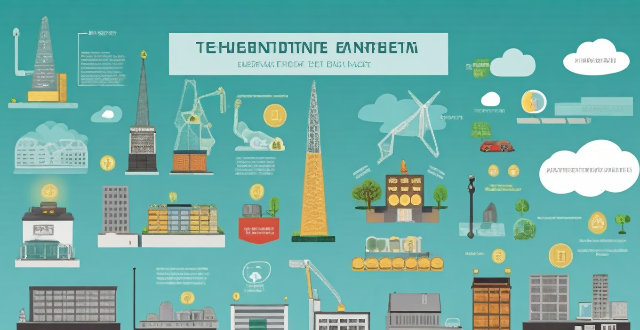Renewable energy sources are having a significant impact on the traditional energy market, affecting pricing, market share, job creation, and environmental concerns. The increased efficiency and reduced installation costs of renewable technologies have made them more competitive with traditional energy sources, leading to declining electricity prices overall. Additionally, the growing demand for renewable energy sources has led to an increase in their market share, particularly for solar and wind power. The transition to renewable energy is also creating new job opportunities across various sectors of the economy, while addressing environmental concerns associated with fossil fuel consumption.

The Impact of Renewable Energy on the Traditional Energy Market
Renewable energy sources, such as solar, wind, hydro, and geothermal power, are becoming increasingly popular due to their environmental benefits and lower operating costs. This shift towards renewables is having a significant impact on the traditional energy market, which has long been dominated by fossil fuels like coal, oil, and natural gas. In this article, we will explore how renewable energy is affecting the traditional energy market in terms of pricing, market share, job creation, and environmental concerns.
Pricing
One of the most noticeable effects of renewable energy on the traditional energy market is its impact on pricing. As renewable technologies become more efficient and their installation costs decrease, they are becoming more competitive with traditional energy sources. This has led to a decline in the price of electricity generated from renewable sources, making it more affordable for consumers and businesses alike.
Key Points:
- Renewable energy sources are becoming more cost-effective compared to traditional energy sources.
- The declining prices of renewable energy technologies have made them more attractive to consumers and businesses.
- The increased competition between renewable and traditional energy sources is driving down electricity prices overall.
Market Share
Another way that renewable energy is affecting the traditional energy market is through changes in market share. As more people and governments prioritize sustainability and reduce their carbon footprint, there has been a growing demand for renewable energy sources. This demand has led to an increase in the market share of renewable energy sources, particularly solar and wind power.
Key Points:
- The demand for renewable energy sources is increasing due to concerns over climate change and sustainability.
- Solar and wind power are experiencing rapid growth in market share compared to traditional energy sources.
- Government policies and incentives are promoting the adoption of renewable energy sources, further increasing their market share.
Job Creation
The transition to renewable energy is also creating new job opportunities in various sectors of the economy. While some jobs may be lost in traditional energy industries, such as coal mining or oil drilling, new jobs are being created in areas like solar panel manufacturing, wind turbine installation, and energy storage technology development.
Key Points:
- The renewable energy industry is creating new job opportunities across various sectors.
- While some jobs may be lost in traditional energy industries, the overall employment effect is positive.
- Governments and companies are investing in training programs to help workers transition from traditional energy industries to renewable energy sectors.
Environmental Concerns
Finally, one of the most significant impacts of renewable energy on the traditional energy market is its potential to address environmental concerns associated with fossil fuel consumption. By reducing our reliance on coal, oil, and natural gas, we can decrease greenhouse gas emissions and mitigate the effects of climate change. Additionally, renewable energy sources do not produce harmful pollutants that contribute to air and water pollution, making them a cleaner alternative to traditional energy sources.
Key Points:
- Renewable energy sources have the potential to address environmental concerns associated with fossil fuel consumption.
- Reducing our reliance on traditional energy sources can help mitigate the effects of climate change.
- Renewable energy sources do not produce harmful pollutants that contribute to air and water pollution.
In conclusion, renewable energy is having a profound impact on the traditional energy market by affecting pricing, market share, job creation, and environmental concerns. As technology continues to improve and more countries commit to reducing their carbon footprint, we can expect these trends to continue in the coming years.